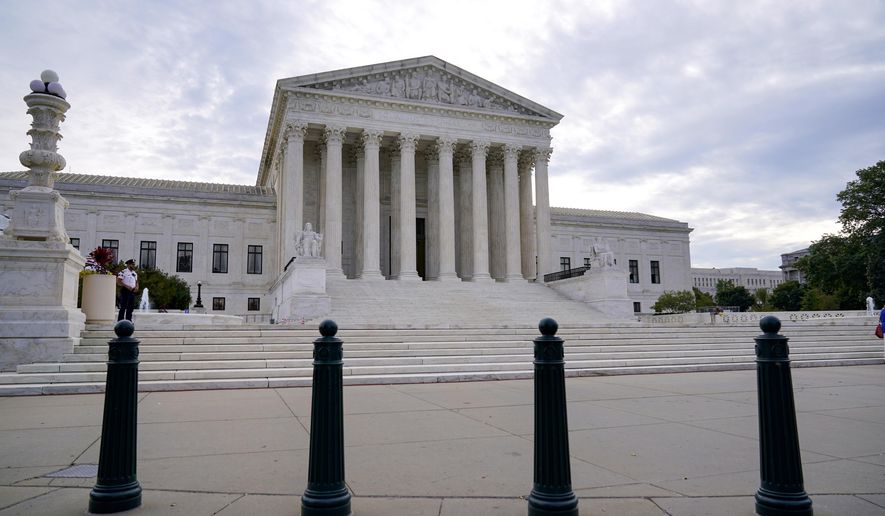The Supreme Court heard arguments Wednesday from the Justice Department for why the justices should reinstate the death penalty for Boston Marathon bomber Dzhokhar Tsarnaev, even though the Biden administration has paused federal executions.
The death penalty was first sought against Tsarnaev by then-Attorney General Eric H. Holder Jr. during the Obama administration, where Mr. Biden served as vice president. The Trump administration continued fighting for Tsarnaev’s execution by lethal injection.
A jury had sentenced him to death in 2015, but the U.S. Circuit Court of Appeals for the 1st Circuit overturned Tsarnaev’s sentence last year after his attorneys raised issues with jury selection and the trial court having excluded certain evidence that suggested he had been influenced by his older brother.
The Biden Justice Department is continuing the fight to reinstate Tsarnaev’s lethal injection.
Mr. Biden opposed the death penalty during his campaign, and his administration has paused federal executions since he took office.
Eric Feigin, deputy solicitor general for the Justice Department, told the justices Wednesday that any error by the trial court was harmless and did not warrant the death sentence being reversed.
“The administration continues to believe the jury imposed a sound verdict,” Mr. Feigin said.
The Supreme Court won’t consider the constitutionality of the death penalty, but the justices will focus on whether the jury was impartial and wether the trial court conducted a fair trial when considering the punishment for the al Qaeda-inspired bomber.
Tsarnaev was sentenced to death in 2015 after being convicted in federal court in Boston on 30 criminal charges, including four murder counts and usage of a weapon of mass destruction resulting in death.
He and his brother, Tamerlan, both Kyrgyz Americans of Chechen heritage, had placed homemade bombs at the finish line of the 2013 Boston Marathon, killing three people and severely injuring hundreds of others.
Tsarnaev’s lawyer had argued that jurors should have been quizzed about media coverage of the attack and probed for possible bias.
On Wednesday, Ginger Anders, who represented Tsarnaev, focused her oral argument before the high court on the trial court having excluded evidence that his brother, Tamerlan, had been linked to prior murders — namely, a triple homicide in 2011.
She argued that the violent act showed that Dzhokhar Tsarnaev would have been heavily influenced by his brother to continue their terrorizing jihad.
The crux of the defense was that, although Dzhokhar Tsarnaev is guilty, he shouldn’t be sentenced to death due to the heavy influence of his brother.
“That evidence was central to the mitigation case,” Ms. Anders said. “This was the key indoctrinating event.”
The lower court had excluded the evidence related to the prior murders, noting that the 2011 case had remained unsolved.
The Tsarnaevs were inspired to commit the Boston Marathon bombing by al Qaeda, and Dzhokhar Tsarnaev told federal investigators that he and his brother were angry about the wars in Iraq and Afghanistan, in which Muslims were being killed.
After the bombing, the brothers fled from the police once they were identified as suspects and killed an MIT police officer during their flight.
Dzhokhar Tsarnaev was wounded and apprehended, and Tamerlan Tsarnaev died in a shootout with police.
Tsarnaev, 28, is being kept in a federal prison in Colorado.
The case is United States v. Tsarnaev, and a decision is expected by the end of June.
• Alex Swoyer can be reached at aswoyer@washingtontimes.com.




Please read our comment policy before commenting.